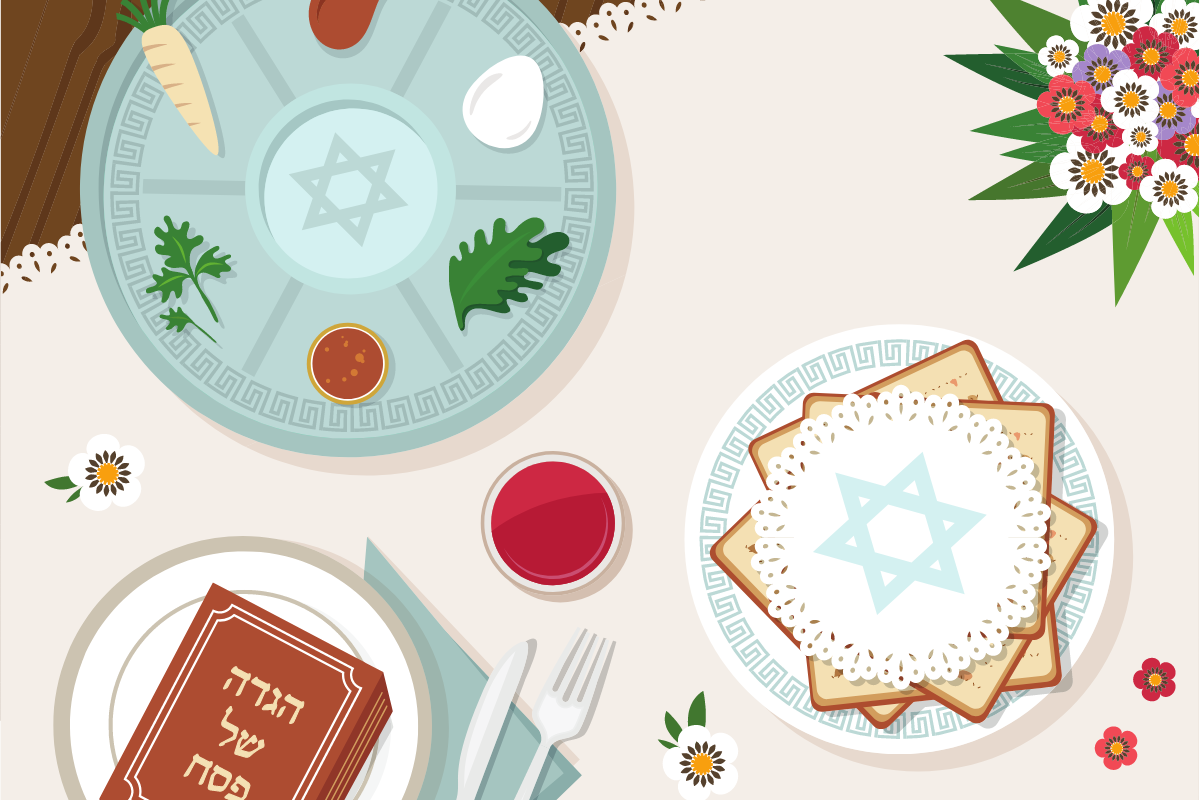I was angry when I got her text. And hurt.
One of my close relatives wrote that she would not be coming to our seder this year. She said, “Three of us have other plans as we are not comfortable with the seder texts and intentions.”
What? You’re boycotting the “intentions” of a thousand-year-old Jewish tradition? (Two thousand if you count the first seder referenced in the Mishnah, around 90 BCE.) “Don’t expect to be invited again,” I thought to myself.
Jews have observed Passover and held seders throughout nearly 100 generations of upheaval and war. We have held seders in concentration camps, in prisons, in the White House and in space. We have peace seders, freedom seders and LGBTQ+ seders.
I recognize that Palestinians do not have the freedoms that Passover cherishes. I am mortified by the suffering in the Middle East. I understand how far away we are from the haggadah’s injunction, from Deuteronomy, that “we must always remember that we were slaves in the land of Egypt” and that “we must not subvert the rights of the stranger or the orphan.”
Worse yet, we are also impossibly far away from the final words in the haggadah, “Next year may all be free.”
We have a long, long way to go.
Still, I was angry and hurt. This is our family seder. As I wrote in a previous Kveller essay, I love Passover. The food, the family, the friends. I love the stories, and I love the connection across time.
I also love the debates that pop up most years. While we try not to get personal, we do argue. I always thought our seders were based on trust, that if we spoke honestly and thoughtfully, we could disagree respectfully and learn from one another. Maybe I was wrong?
I consoled myself with this family member’s decision when I thought about the Four Children: the wise, the wicked, the simple and the silent. I thought that she was emulating the wicked child in the haggadah, who asks, “What is this observance to you?” Our tradition teaches that by saying “to you” and not “to us,” the wicked child rejects being part of our people and the essentials of our faith.
Hah! My relative is a wicked child. I can deal with that.
But no, that’s not right. And it wasn’t until I reread my Kveller essay about Passover from last year that I understood why I was wrong.
It’s because her choice is largely in line with my own view of Judaism. As I wrote last year, “My wife and I have tried over the years to create Passover traditions for our kids to ultimately accept, reject or modify when they have families and homes of their own.”
My relative, at least for this year, has rejected a tradition that I hold dear. I suspect that she believes we are so far away from the Jewish ideal that she has chosen to shun the seder, but this doesn’t mean she is rejecting our family. If I believe it’s OK for my family to “accept, reject, or modify” our traditions, then her choice is a reasonable example of that objective.
Back in the 1980s, my mother put an orange on her seder plate in solidarity with Jewish lesbians, following the lead of Susannah Heschel. As a kid I didn’t fully grasp the significance of her protest, but of course now I do. We must adapt our seders to reflect the times. While I don’t intend for this year’s seder to be a litmus test on our feelings about the war, and I hope we don’t argue endlessly, I do intend to acknowledge it, offer a safe space to discuss it and pray for peace.
I am going to put an olive branch on our seder plate this year. It’s not much, I know, and it won’t change a thing. But it will help us remember who we are and who we want to be, which is at the heart of every seder.
I am not angry at my relative anymore, and I’m not hurt. While I wish the desire to spend time with our family would have prevailed, I accept her choice.
I hope she’ll join us next year.
In the meantime: Peace for us. Peace for everyone. Next year may we all be free.








